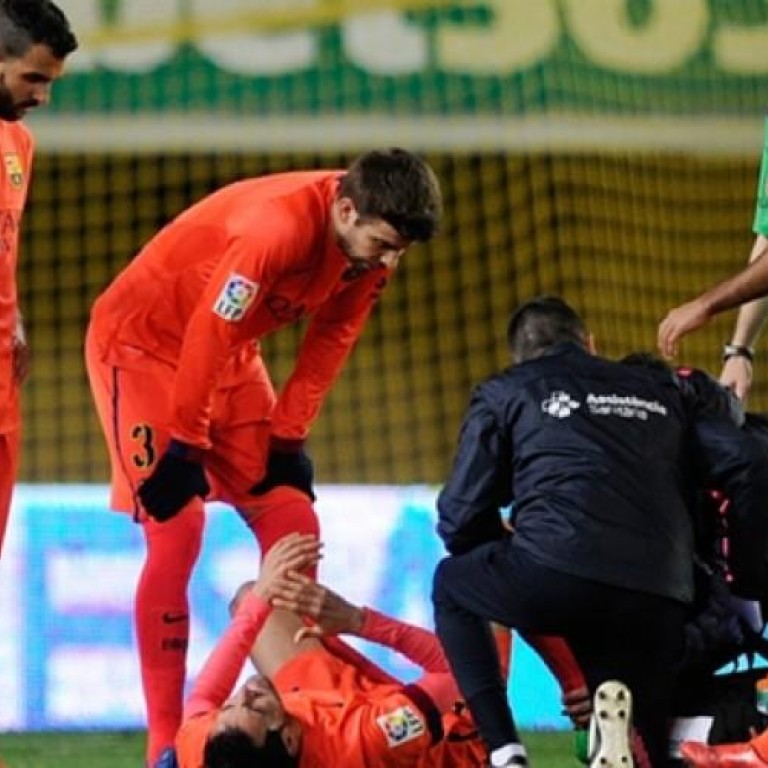
Overreaction to time waste tantrum shows no common sense
La Liga grass-throwing dismissal shows it's not the farce, but the force that determines penalty
No matter how silly and infantile throwing tantrums and clumps of grass may be on the soccer pitch, they can still get you sent off.
The latest example comes from the Spanish top-flight league where Celta Vigo striker Fabian Orellana lost his rag at the time-wasting antics of Barcelona's Sergio Busquets.
An enraged Orellana, 29, remonstrated with the referee before ripping up a clump of grass and throwing it at the midfielder.
Throwing grass at someone is lightweight when we recall Eric Cantona's flying kick at a Crystal Palace fan
The turf made contact with the back of Busquets' neck and the 26-year-old Spain international with 74 caps went down like a tonne of bricks, while grabbing his face.
Referee Inaki Vicandi Garrido showed Orellana the red card for violent conduct.
"Grassing on someone" has taken on a whole new meaning. Here are three facts we can learn from this incident:
First, the positive is that Celta Vigo coach Eduardo Berizzo fully accepted the referee's decision and chose to focus on condemning his player. "It's completely irresponsible to leave your team with 10 men ... We will have to talk about this behaviour," said Berizzo. The best way to avoid controversy is to not do anything controversial in the first place.
Orellana put himself in a position that risked compromising his team. Some players have better "footballing intelligence" than others and become frustrated when their teammates fall short of smart behaviour.
Orellana was clearly not smart enough to appreciate he was standing fewer than 10 yards away, which is why Busquets refused to take his team's free kick to restart the match.
Second, professional players at the highest levels should know about time-wasting antics, so there is no excuse in falling into the trap of being provoked. Anyone who has watched football for a while will know about the behaviour of teams holding on to a lead.
Orellana was clearly not smart enough to appreciate he was standing fewer than 10 yards away, which is why Busquets refused to take his team's free kick to restart the match
Orellana is an international player for Chile and therefore should have had enough nous to understand the tricks of the trade.
The Busquets-Orellana incident informs players and coaches about the mental strengths, weaknesses and behaviour of their players.
Such information comes in handy during international tournaments and high-stakes matches.
Referees also understand time-wasting tactics and the good ones will appropriately include added time.

There are rules about objects (or balls) being thrown and the final interpretation is left to the referee.
However, the rules do not clearly define what nature of objects thrown actually constitutes violent conduct, only the act itself. If an object was thrown in a reckless manner then a caution is sufficient, and if it is thrown with excessive force it is violent conduct.
Is chucking a piece of paper, a pair of socks, or a lump of grass considered as serious as throwing a coin, a boot or a fist?

Furthermore, referees should not be so easily hoodwinked by players overexaggerating the seriousness of their "injuries".
More common sense is needed from match officials, especially since players are usually trying to cheat and deceive referees
In contrast to Orellana, when other players succumb to soccer rage they deserve red cards. Throwing grass at someone is lightweight when we recall Eric Cantona's flying kick at a Crystal Palace fan at Selhurst Park in 1995 and Zinedine Zidane headbutting an opponent in the 2006 World Cup final.
Although inexcusable, these players knew how to physically punish someone in response to provocation.

